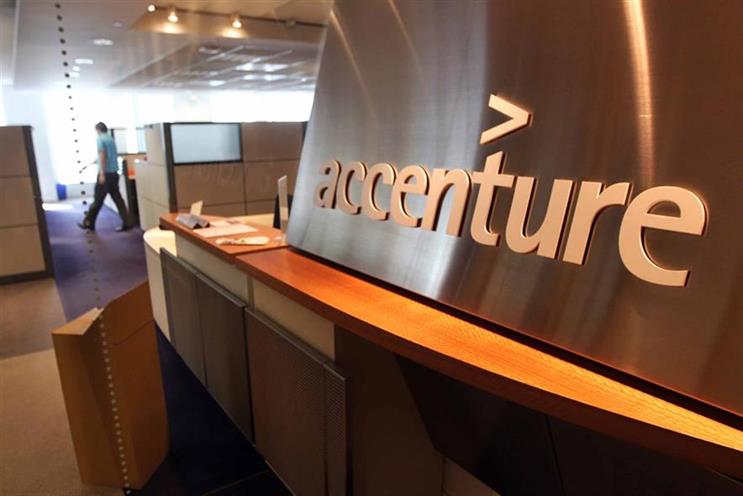And so we have it. The spectre-like figure of management consultancies, once the secretive Rasputin-like figures whispering in the CEO’s ear, have entered the agency game.
Better known as the industry-neutral advisor – the minister-without-portfolio if you will – businesses better known for IT and finance expertise have suddenly parked their tanks on the front lawn of the holding companies like a modern day Cold War stand-off, played out in a theatre of digital disruption.
So, what’s fuelling those moves, and – perhaps most importantly – should agencies be worried? The short answer is (probably) "yes". Clearly influential, certainly capable, flushed with capital and acquisitive, the consultancy world has long-seen what many in the digital economy have been predicting for some time – namely the collision of promiscuous consumer behaviour, data and analytics capability and the new paradigm of "always-on" consumer engagement are all throwing out the traditional marketing models we’ve traditionally anchored ourselves to.
Instead we see a world where marketing and technology seemingly intertwine with one another, no longer separated at birth but one-in-the-same, fusing what was the role of the CMO and CIO to the rapidly rising new function (as evidenced by recent appointments at companies such as Coca-Cola) within client organisations – the chief customer officer.
It’s no wonder Accenture acquired Kamarama given their need to connect thinking with "doing" or "making", providing companies with end-to-end experiences.
Consultancies have offered a future underpinned by data for some time and their exposure to broader business change allows them to do so. AI will no doubt become part of the mainstream communications mix soon, and consultancies are well placed to advise clients on the major macro trends that impact all aspects of most blue chip companies.
Given where they sit in the strategic hierarchy as board room partners, management consultancies are well placed to influence and advise. And with deep pockets, they could bolster the one area they would have been criticised for lacking – execution capability and creative chops.
It’s no wonder Accenture acquired Kamarama given their need to connect thinking with "doing" or "making", providing companies with end-to-end experiences. That also remains true in the programmatic trading world – the new battlefield for media – with consultancy talk of alternative platforms and in-house solutions as a result of ANA reports, ad fraud and transparency.
Arguably, traditional agencies have been slow to respond to this corporate and consumer trend despite PR and pitch decks.
Holding companies, even with their bullish narrative around "integration" and "consumer-first" solutions, are still organised around their own brands and commercial needs. Muscle memory is a powerful force too, with many within the creative community remain still scornful (or perhaps fearful) of data and analytics, arguing that the serendipity of big ideas and product sales or brand equity remain their exclusive territory.
Media too isn’t safe, despite arguably sitting on the proverbial digital "keys to the castle" for years now given their relatively early adoption of new media behaviours, channels and data analytics.
Media agencies crave what consultancies have in droves – access to the CEO and an ability to connect media efficacy with business outcomes. Programmatic re-wiring will help with that, but not without navigating the current maelstrom that dominates the trade headlines. While things will likely calm down, credibility has certainly been questioned at the highest levels.
So, all doom and gloom for the good folk of agency land? That feels unlikely, despite the very real threats agencies face from this new model.
Holding companies are very strong client businesses, with great talent to respond to shifting sands. Their ability to adapt and evolve remains evident. One only has to look at the success of new models like Hearts and Science and the broader Omnicom triumph with McDonald's, or the rise of new agencies like Blackwood Seven to see that.
When they point their creative, planning, data and analytics talent all in the same direction, aligned to consumer and client needs, great things can happen.
So much M&A execution struggles when the realities of working together – despite the well-intentioned ideas of (ironically) consultants and bankers on a white board – play out in the day-to-day.
Group M’s vision to see their future anchored around building the world’s largest audience platform for an addressable media future is as smart as it is pragmatic. Arguably if the agency community were able to figure out economic models to match those of their consultancy competitors, dare I say it that their future would be even more secure?
However, the single biggest weakness within the current consultancy foray into agency land is subtler and perhaps the most risky to their strategies – culture.
So much M&A execution struggles when the realities of working together – despite the well-intentioned ideas of (ironically) consultants and bankers on a white board – play out in the day-to-day. It would be fascinating to be a fly on the wall at the first company offsite between the acquired agencies and acquirer consultants, despite all the positive PR and earnings multiples on offer. Culture clashes across the conference table are not to be underestimated, even if everyone says they want to play nicely.
What is ultimately true, is that life, as we know it across the marketing community, will continue to evolve, reflecting consumer behaviour, providing clients with more choice of how they want to work with experts from areas as diverse as business change, corporate strategy, customer experience, brand-building or communications strategy.
Whether that’s an all in one, perfectly formed bundle or more fragmented expertise, only time will tell.
Perhaps all this means that if parking a few tanks on the neighbours’ front lawn gets us to the denouement quicker, then I suspect the industry will be all the better for it.
Richard Dunmall is president of Media IQ.


